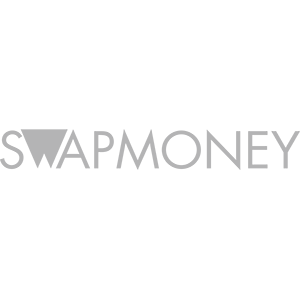At Currencycloud, we power cross-border payment and foreign exchange solutions for digital banks of varying sizes across Europe.
One of these banks is Lithuanian-based mano.bank. We spoke to Ruslanas Telnovas, CEO of mano.bank, about their journey so far – and how Currencycloud has helped it to achieve its goals.
Talk us through the origins of mano.bank – where did your journey begin?
Before becoming a bank, mano.bank was the biggest and most successful credit union in Lithuania. During 2017 and 2018, the credit union sector was undergoing reform and each union had to choose to either join the central credit union and remain a credit union, or to start reorganising and become a bank.
So, we chose the more difficult option and were the first financial institution to receive a specialised bank license issued by the European Central Bank, in October 2018. We officially started operating as a bank in January 2019.
Why did you take this path?
It was a no-brainer for us. A financial institution built for a population tied to a specific region in Lithuania would have been too small. The only way to succeed in a competitive financial services landscape is by employing the latest developments in financial technology and developing cross-border financial services. While cross-border regulation still needs to catch up, we believe that it’s the only way to go, especially for a bank from such a small market as Lithuania.
How would you describe the market for banking services in Lithuania?
While there are ten banks in Lithuania, the banking services are dominated by two major Scandinavian banks (SEB and Swedbank) who share over 50% of banking sector credit and 66% of banking sector deposit portfolios.
However, both banks have recently faced significant AML (Anti-Money Laundering) and KYC (Know Your Customer) issues in the Baltic States, and therefore are becoming very risk-averse across all service levels. This has reduced access for the general public and SMEs to banking services, creating a gap in the market and an opportunity for new players.
At the same time, the rise of new market players over the last couple of years has been immense, due to favourable initiatives and smart policies implemented by the Bank of Lithuania. For the past two years, Lithuania has led the way in continental Europe in terms of the number of financial licenses issued.
The new market entrants have brought increasing technological competition. Lithuanians are increasingly demanding fully digital banking services – nobody wants to make time-consuming trips to the bank anymore just to open a bank account or get a loan. Having said that, reliability and brand recognition is still very important for Lithuanians who, for historical reasons, are cautious when it comes to depositing their money and trusting financial services.
On a regulatory side – even though the number of license issues is growing, it’s not easy to get and sustain one. Regulation and requirements for AML, KYC, and capital are very strict. Those who do get a license, face a strict and controlling regulatory environment, and have to adapt to standards set out by the Bank of Lithuania.
We want to be the trusted name with a digital offering and we know we need to adapt quickly to changing market conditions. That’s where partners like Currencycloud come in.
Read more:
- Understanding the impact of new EU transparency rules
- Challengers making the leap from retail banking to business banking
What differentiates mano.bank?
Unlike most other challenger banks, we offer a full spectrum of banking services, from cross-border payments and currency conversion, to loans and deposits for both private and business customers.
We are the first bank in Lithuania to offer online consumer loans and online bank account opening for businesses. This is a big leap for the Lithuanian banking sector, where opening a business bank account can take weeks – if it is even possible. Newly established fintechs and financial service companies in particular, encounter difficulties when applying for a Lithuanian bank account at incumbent banks.
Another differentiation comes from our mission to serve the financially underserved. It might seem strange that we talk about financially disadvantaged companies and individuals in the EU. However, the reality is that not all profitable small businesses can get a loan. Companies in need of a bank account are being turned down by incumbent banks, and the self-employed usually do not fit rigid banking criteria for loans. We tackle this market and are willing to look into the individual circumstances of each potential customer.
What qualities do you look for when considering potential partners?
There are three key points to consider when evaluating a potentially successful partnership. Firstly, the partner needs to bring the necessary capabilities and knowhow. Secondly, their processes and approach have to be both adaptable and efficient. Lastly, it’s important to consider whether their corporate mission, culture, and strategy are compatible in the long term. Currencycloud ticks all the boxes for us.
How has Currencycloud helped you?
Currencycloud gave us the necessary tools to offer more value to our clients, and our product is now more competitive. From the very start of our communication, we felt we were in the right hands. Currencycloud’s service is impeccable, the integration went smoothly, and, most importantly – it added one more valuable service for our customers.
Currencycloud works with digital banks at every stage of their journey. If you would like to work with us, speak to our sales team.




